The Education and Solidarity Network spoke with two of its francophone union members, UNSA-SE (France) and FPSS-CSQ (Quebec), in order to discuss the issues and challenges relating to the recognition, health and wellbeing of the school support personnel.
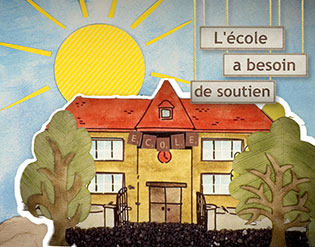
 Élise Caperan is chief education adviser and national representative of support personal at UNSA-Education (France).
Élise Caperan is chief education adviser and national representative of support personal at UNSA-Education (France).

Éric Pronovost has been the president of the Fédération du Personnel de Soutien Scolaire (FPSS; Federation for Education Support Personnel) since 2013. He also worked as a school support personnel, as a child care provider (Quebec, Canada).
Hello Élise, hello Éric. To start, could you tell us about your union?
Élise Caperan – UNSA-Education is a union federation for education professionals. This includes National Education as well as the associative or sport sector and informal education. We are the second federation represented at the French Ministerial Technical Committee of National Education, Higher Education and Research in France.
Éric Pronovost – For us, in Quebec, the Féderation du Personnel de Soutien Scolaire (FPSS) is the only federation which exclusively represents school support personnel in Quebec. FPSS-CSQ has the ability to create a work space for school support personnel where the working conditions of all our professionals are respected by employers. Alongside its colleagues, it contributes to developing real solidarity in the field of education. The federation is at an undeniable advantage as it is part of the big Centrale des syndicats du Québec (Quebec labour congress) family.
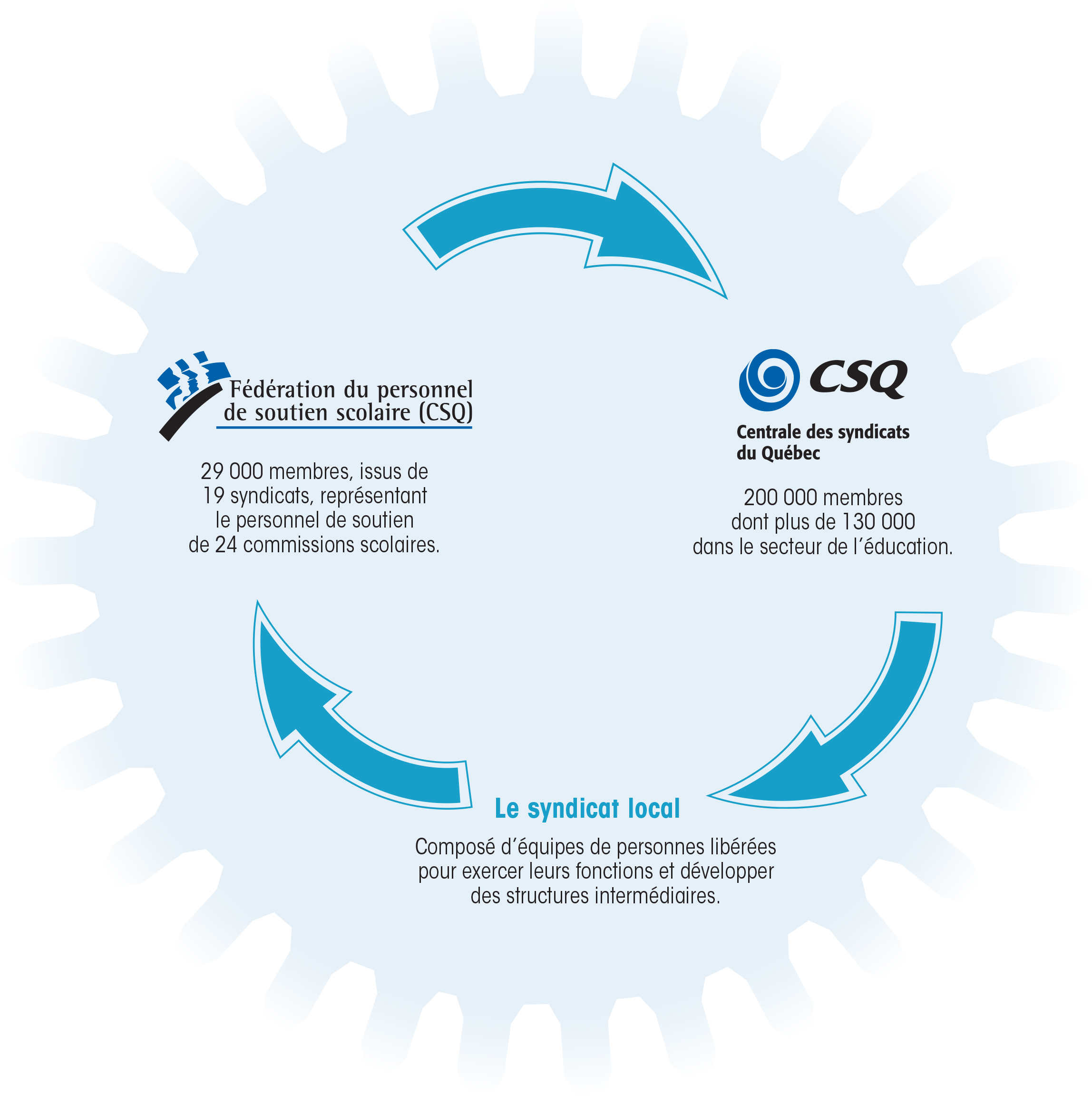
What is the role of education support personnel in your organisation?
E.C. – So for us, they are completely recognised and represented within our federation since all school support personnel have their own trade union organisation within the Fédération de l’UNSA-Education. Social workers have their own trade union, as do school nurses, administrative staff and heads of educational establishments. Additionally, the education advisor and Schools psychologists, as well as AESH (disability support assistants) and AED (education assistants) are grouped within Education union of UNSA. All of these professions are well represented in our federation through their own union.
So there’s no trade union specifically dedicated to school support workers, like in Quebec?
E.C. – Exactly.
What do we mean exactly by education support personnel ?
E.P. – Here in Quebec, we have 81 different types of education support personnel, split into 5 larger categories. There are administrative support staff, manual, technical and para-technical support staff. There’s also another branch, direct services to students, which is a bit different to the other professionals and teachers. There’s currently no regulatory body for education support personnel but we are taking part in discussions, intervention plans and defining what our activity should be. We are a take part in those decisions…or if we don’t, then we are trying to define our place.
E.C. – That’s really interesting because the situation is completely different in France. For us, the notion of education personnel means something very specific: they are there to support students who need more individualised help, or whose home life affects their studies. “Education support personnel” therefore includes teachers, learning support assistants or teaching assistants, associations exterior to the school, or even disability support assistants when we’re dealing with disabled students. So if we were to transpose the Quebec understanding of school support staff to France, it would considerably increase the number of roles and employees! So we will differentiate between administrative and site management staff, health and social staff (nurses, social workers), school psychologists, senior education advisors, the heads of educational establishments, disability support assistants, maintenance, reception and cleaning staff…in short, all non-teaching staff!
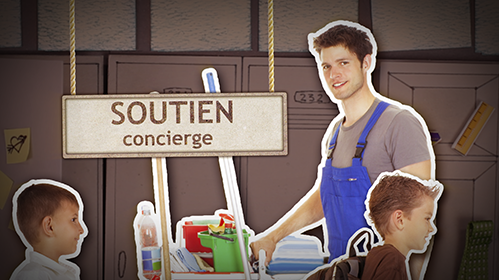 |
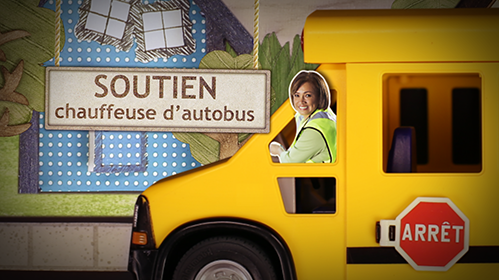 |
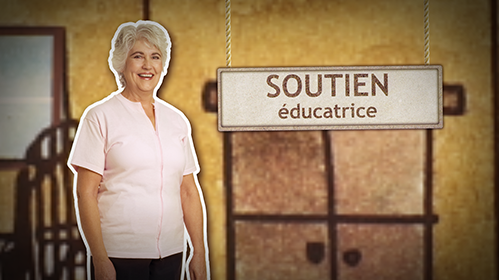 |
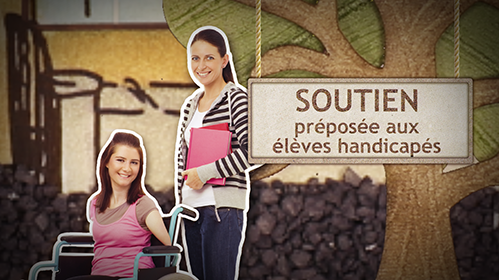 |
 |
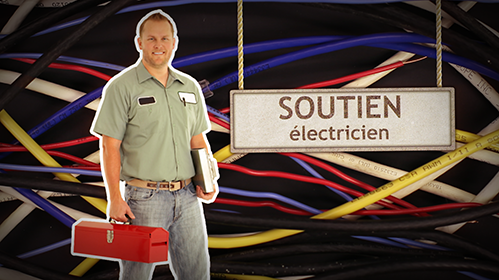 |
Credits : Fédération du personnel de soutien scolaire
In your opinion, what are the issues and difficulties that education support personnel face?
E.C. – They are professionals with totally different workplace realities. If we were to take the example of an disability support assistants (AESH) and the head of an educational establishment, they represent different positions on a hierarchy and they have different roles, even though students provide a common link between them. In this case, the issues they face would be completely different and it would be difficult to group all of these school support positions together. Nonetheless, there was a common issue which came out of our barometer survey: a lack of professional recognition. At the moment, no matter which group you ask, they consistently bring up the issues of a lack of professional recognition and working conditions which don’t match the undertaken missions.
E.P. – We’re seeing the same issue with professional recognition for school support workers. The general population often forget us, because, when we talk about schools, we often think of teachers. We have to continually push for representation in order to be recognised. I should also point out that there are other types of people who work within these establishments. And when we’re talking about a lack of recognition, we don’t just mean by the general population, we also mean by certain school management teams, the government and university researchers. Because, studies often focus on teachers’ workloads and health, but rarely on those of support staff. And that’s the reason why we established a national day for school support staff. In terms of workload, half of our workers have little job security and the other half aren’t working full-time…
E.C. – That’s something our countries have in common. In France, what characterises an important proportion of education support personnel is that their position isn’t secure, it might even be extremely insecure. While we have colleagues who theoretically have temporary contracts, even though we are in the public administration. In fact, having a temporary contract can make their situation more unstable in comparison to public servants…and the contracts themselves, which might be poorly paid or reduced hours contracts, mean there are lots of employees in these roles whose position is insecure, even when they are in the public administration.

RES: What action are you currently taking within your organisation in relation to health?
E.P. – We have just carried out a survey on violence experienced by education support personnel. We are also trying to resolve other issues, such as isolation. We are organising seminars, conference days, training, etc. We also have information documents which will allow us to better understand the issues and their solutions. We are also undertaking promotional activities within local unions. When we have a stall at a fair, it’s the sort of thing that attracts lots of people, because the subject and the visuals are striking. We are also in constant contact with the the committee of standards, equity, health and safety at work, which is a provincial organisation. And our lawyers defend cases files under the laws on that very subject. Because in education, we rarely see physical problems, the issues are much more psychological, and it’s difficult to demonstrate that.
E.C. – So, I don’t think that we have taken any action to specifically deal with health issues. At the moment, wellbeing is the chosen focus point, which will put light on everything linked to burnout. But for health and safety issues specifically, not really, or if we have, it will be through the Health and Safety Committees. It’s a representative body, or rather where union and the administration meet and whose mission is, rightly, to address these issues of health and safety at work. At a union level, we are undertaking one-time surveys for employees. For example, we know that workers responsible for supporting the disabled feel that their positions are very precarious. And more accurately, they disclose problems relating to the violence they can encounter in their place of work. We’ve been more focused on wellbeing, which is linked to health, but hasn’t been clearly defined yet. So, it would be really interesting if we really leaned into that.
You mentioned two bodies who deal with health issues: committee of standards, equity, health and safety at work (CNESST) in Quebec and Health and Safety Committees (CHSCT) in France. How is health taken into account within your trade union?
E.C. – The fact that CHSCT was created in the Educational National a few years ago (it was really recent), meant that we had to be technically clear about this file. As for the federation and, more notably, within teachers’ unions, we have a person who is in charge of all issues linked to health and psycho-social risks. For us, health issues nearly always appear from the point of view of psycho-social risks. If you compare it to manual occupations where there are more physical health issues, in the world of education, more often it’s issues of psychological health, or even mental health, which make themselves known today.
E.P. – At the CSQ, we have resource people who work on the topic. They are specialists in health and safety at work and they make sure we follow the law and actively monitor any changes. We are working closely with university researchers. This allows us to delve deeper, to uncover recent problems and to analyse them to see what their impact would be. They are an essential resource.

What action can we take regarding the health and wellbeing of school support staff?
E.C. – So, after hearing Éric Pronovost talk about these surveys on the violence experienced in Quebec, I thought that could be an idea. There might also be other things we could do regarding women’s issues and the issue of women feeling isolated. Simply doing a survey which didn’t include teachers would already be remarkable in the literal sense of the term. As in Quebec, we only think about the work of teachers, even though education implies all the roles played by other contributors. But that’s self-explanatory, we have a very academic and classic vision of what education should be, e.g. knowing how to transfer knowledge and nothing else…
E.P. – That’s true! And unfortunately, it’s often the image that people have. Even though the reality is much more complex. As for us, what we’re working on is the Education International (EI) survey on the quality of working life for school support staff, which aims to compare the situation in Quebec with that in other countries. As for us as a union, we often hear demands straight from the source. But we also have to present statistics that show the scale of these issues. That was very helpful. And as I’ve already said, we have established a national day for Education support personnel which is an important event to recognise them and to bring people together.
E.C. – Put simply, the issue is to make these people visible. And it’ll take time: the barometer established by our federation was only picked up by the media after its 6th year. It took six years for the media to say, ah well, anyway, look there are union organisations who are interested in the issue of wellbeing at work and particularly in wellbeing at work within the field of education, and not just the wellbeing of teachers. So, all this comparative work has made it obvious what trade unions need to do in order to make these employees and their issues visible. Because our governments have always been committed to comparing what we’ve done with what is happening elsewhere, maybe we should send them these comparisons.
Élise, Éric, thank you very much!






